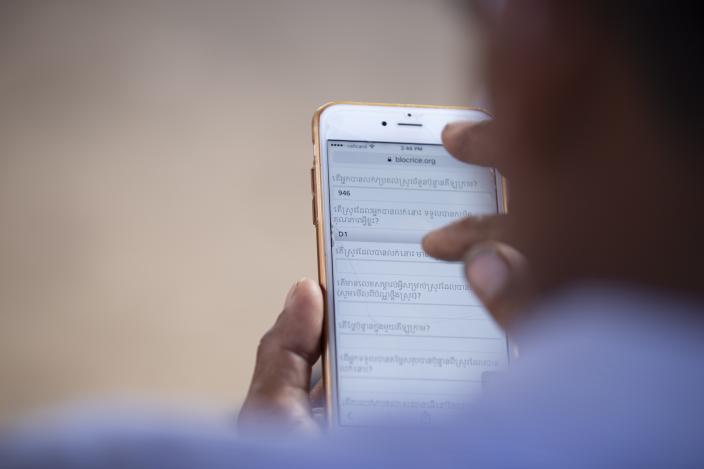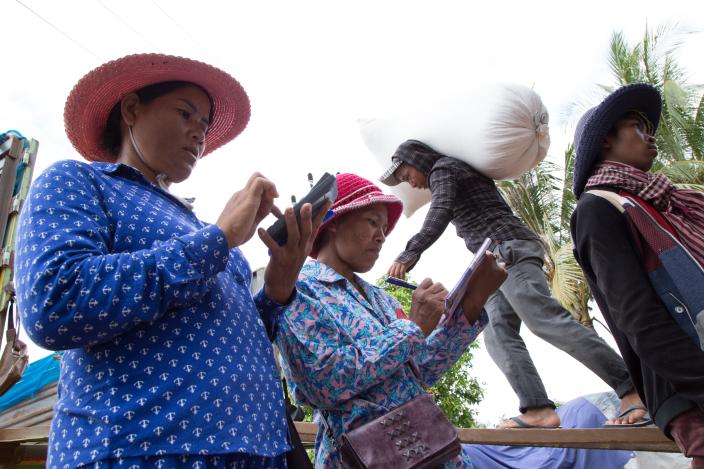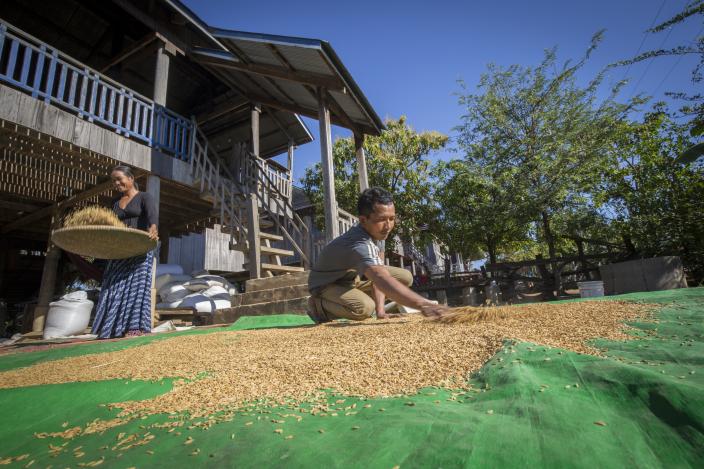On May 25, H.E. Veng Sakhon, Minister of the Ministry of Agriculture, Forestry and Fisheries, visited farmers who are implementing the BlocRice project in Preah Vihear’s Rovieng District to understand how the new project is improving farmer livelihoods.
BlocRice is a new project launched by Oxfam in November 2018. The project uses Blockchain technology to connect a network of people in the rice supply chain to ensure that farmers are better and fairly paid. The idea starts with a contract. The exporter commits to pay farmers the market price, plus a premium, which guarantees a market for the rice and reduces some uncertainties for the farmers. BlocRice creates an accessible database visible to all the participants in the project, a sort of digital “smart contract” that helps farmers negotiate a better price.
Smart Contract for Farmers to Be Fairly Paid
During this pilot stage, Oxfam and its partner Amru Rice are working with the Reaksmey Agriculture Cooperative, compromising a total of 50 farmers. Farmers participating in the BlocRice pilot project agreed to provide 100 metric tons of rice. They ended up delivering 92.5 tons at $22,323, which were shipped in two containers to the Netherlands in late March 2019. “A late-season drought reduced production slightly,” said Ms Hong Soknin, a farmer from the cooperative.
BlocRice provides more predictable prices and “has more benefits than selling to traders, because their price varies,” said rice farmer Lyvoeung Chum, president of the cooperative. “With the BlocRice contract,” she said, “the price is stable.”
The farmers participating in BlocRice were paid about $0.24 per kilo, and an additional $.05 premium. The premium worked out to nearly $100 for most of the BlocRice farmers, who each produced an average of slightly less than two tons of white rice.
“BlocRice is a good initiative in this era of advanced digitization to communicate the source and key information from farmers to end customers,” said the Minister during the visit. “Cambodia had to improve its whole agriculture supply chain to meet international market standards for competitive advantage,” he added.
H.E. Mr. Sakhon also acknowledged Oxfam’s long contribution to the promotion of agriculture in the country as Oxfam has been supporting Cambodia’s development since 1979. Oxfam was the first international organization to operate inside Cambodia after the fall of the Khmer Rouge.

Farmer registers rice selling on BlocRice application. Photo: Oxfam

Farmers record the number of paddy rice bags before transporting to the company’s warehouse. Photo: Oxfam

Farmers from Reaksmey Leuk Kampos Kasekor Agriculture Cooperative enjoy their harvesting. Photo: Oxfam
“BlocRice is a good initiative in this era of advanced digitization to communicate the source and key information from farmers to end customers”
